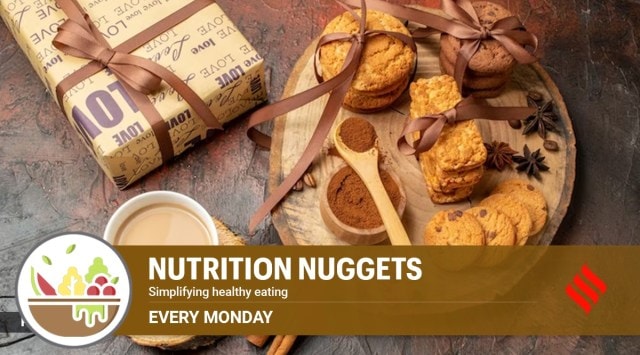How having tea with biscuits ups your blood sugar levels, builds an addiction and leads to weight gain
Biscuits are calorie-heavy and high in refined flour and hydrogenated fats. On average, a plain biscuit contains around 40 calories. However, cream-filled or freshly baked varieties can contain as much as 100 to 150 calories per biscuit. Additionally, it’s rare for anyone to stop at just one biscuit, says Ritika Samaddar, Regional Head, Nutrition And Dietetics, Max Super Speciality Hospital, Saket, New Delhi
 Biscuits, unfortunately, can be quite calorie-heavy and are high in hydrogenated fats (Source: Pixabay)
Biscuits, unfortunately, can be quite calorie-heavy and are high in hydrogenated fats (Source: Pixabay) Most Indians have a fondness for starting their day with a steaming cup of tea accompanied by a couple of biscuits. It has been ingrained in our minds from childhood that consuming tea on an empty stomach can lead to acidity, so it is essential to have a few biscuits with our tea. However, this habit doesn’t end there. Throughout the day, every time we sip on a cup of tea or coffee, biscuits are the go-to accompaniment that we rarely miss. Have you ever taken the time to calculate the number of biscuits you consume in a day? Moreover, have you ever looked into the ingredient list of these biscuits?
Biscuits, unfortunately, can be quite calorie-heavy and are high in hydrogenated fats. On average, a plain Marie biscuit contains around 40 calories. However, cream-filled or freshly baked varieties can contain as much as 100 to 150 calories per biscuit. Additionally, it’s rare for anyone to stop at just one biscuit. Most biscuits are made with refined flour, commonly known as maida, which gets absorbed quickly by the body and can contribute to insulin resistance and weight gain.
Furthermore, biscuits are often loaded with chemicals such as emulsifiers, preservatives and colouring agents, which are added to increase their shelf life. Excessive amounts of salt and sugar are also commonly found in biscuits. High sodium consumption also ends in water retention resulting in bloating, puffiness and weight advantage. As a result, individuals who are hypertensive, diabetic, or overweight should avoid consuming biscuits. It is important to be cautious of sugar-free biscuits as well, as they often contain artificial sweeteners like aspartame and sucralose, which can affect metabolism and disrupt the gut microbiome. In addition, dipping sweet biscuits in tea or coffee can increase blood sugar levels.

Even when a biscuit packet claims to be whole-wheat, fibre-rich, or oatmeal-based, the proportion of these healthier ingredients is usually minimal, ranging from 5 to 10 per cent. The primary ingredient remains the unhealthy refined flour. This deceptive marketing can lead consumers to believe they are making a healthier choice when, in reality, they are not.
Some estimates say that even taking four digestive biscuits is equal to nearly a bag of potato chips! That’s bothersome for the heart health of people with high blood pressure, who eat these biscuits mistaking them to be a healthier option.
Next time you reach for a biscuit, it’s worth considering the potential consequences. There are better alternatives available, such as consuming nuts like almonds, makhana (fox nuts), or roasted bhuna chana (roasted gram). These options not only provide a delicious taste but also offer essential nutrition. Nuts are rich in healthy fats, protein, vitamins, and minerals, making them a healthier choice compared to biscuits.
While the nostalgia and convenience of biscuits with tea are deeply rooted in Indian culture, it’s crucial to prioritise our health and make mindful choices. By replacing biscuits with healthier options like nuts, we can satisfy our taste buds while providing our bodies with the nutrition they need. So, the next time you’re tempted to reach for a biscuit, think twice and consider the alternatives that offer both taste and nourishment.
As they cater to pleasure-seeking areas in the brain, consuming biscuits becomes an addiction much like cocaine and morphine. That’s the reason why you don’t stop at one.



- 01
- 02
- 03
- 04
- 05



























